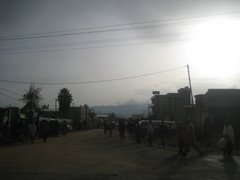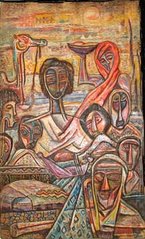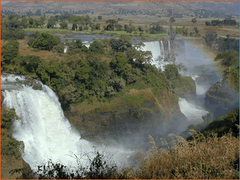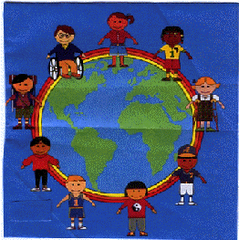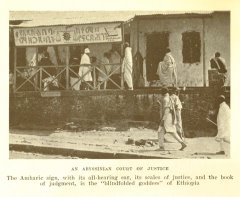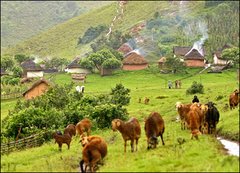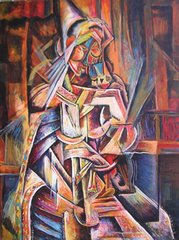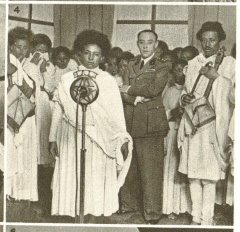Mengistu's regime: A Speck of Good
Ethiopia united
At the time of Ethiopia's revolution, in 1989, against the militant dictator Mengistu, the Ethiopian people united to get rid of a murderer. An entire generation of men was lost during Mengistu's regime; however, important to remember is that Mengistu was a socialist. Himself coming from an underrepresented tribe, he was determined to provide equal opportunity in education, work, health, and life. My father was educated under both Mengistu's regime and the prior regime of the "Conquering Lion of the Tribe of Judah," Haile Selassie. He explained to me the evolution of education policy. Emperor Haile Selassie provided wonderful education and opportunities mainly to his own tribe – the amhara – of which my father was a part. So, when Mengistu took power by force, he was determined to educate every tribe in Ethiopia. There was a two year operation where high school and college students were dispersed throughout rural Ethiopia to be primary teachers. All of this is evidence that Mengistu did not divide Ethiopia ethnically; there was no ethnic or cultural strife. My mother would say to me “we did not know who was amhara or who was tigre or who was somali.”
World Bank, IMF, America’s agenda
However, the World Bank believes “significant political reforms following civil war [overthrow of Mengistu] including development of a new constitution and social order [cultural pluralism] in 1994 created the way for significant social progress.” Think about it, there was ethnic war in other parts of Africa; and the IMF and World Bank experts had, therefore, determined that each African country's problem was ethnicity. So, when Mengistu was overthrown by the current Prime Minister Meles Zenawi's Ethiopia's People Revolutionary Democratic Front (EPRDF), IMF/America/World Bank advisors swooped in and gave billions of dollars of aid to the new government with the provision that, among other things (e.g.importing billions of goods), the government would have representation for each tribe and that their would be regional governments. And although this seems like a great solution to prevent ethnic war and genocide, such a problem did not exist in Ethiopia. Don't misunderstand my argument, Ethiopia did have ethnic groups, over 90 ethnic groups to be exact, and there were differences between each group. They were neither pure from government nor isolated from one another. After all, Ethiopia has existed as a nation for centuries. There existed ethnic conflict because of feudal system during the "Conquering Lion of the Tribe of Judah," Emperor Haile Selassie's rule: the amhara's were privileged and the oromo's were traded as slaves and other systems pre-RasTeferi. However, without the IMF and World Bank's intervention, Mengistu and the Ethiopian people revolted against this injustice and fought for unity. Mengistu – despite his militant rule – fought for social equality. Meles and the new constitution did not bring a new progressive social order; they just adopted a western social order, or attempted to adopt a western social order.
The outcome of cultural pluralism is ethnic consciousness and ethnic tension. The negative outcomes of educational instruction in local languages, besides its high monetary cost as pointed out by the World Bank, is a firmer solidarity of ethnic groups, a language barrier between neighboring tribes, an isolation of ethnic groups from one another, a diversion of attention towards ethnic relationship and away from central government business, and a language barrier for rural students trying to enter national market conducted in Amharic language.
In America, political parties are divided by economic and political ideology, not by race and culture. Division by race and culture [ethnicity] is a lazy strategy exceptional only for poor African countries that need a "democratic" government fast.
